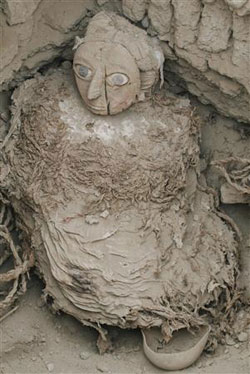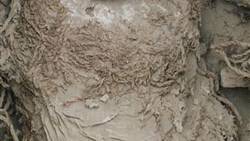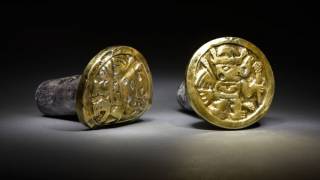Pre-Incan female Wari mummy unearthed in Peru
Source: reuters.com
 Photo Slideshow Photo Slideshow |
Besides the female mummy, the tomb contained the remains of two other adults and a child. It is the first intact Wari burial site discovered at Huaca Pucllana in the capital Lima, and researchers believe it dates from about 700 AD.
"We'd discovered other tombs before," said Isabel Flores, director of the ruins. "But they always had holes, or were damaged. Never had we found a whole tomb like this one -- intact," she said, standing on the ancient plaza, a huge partially excavated mound of rocks, bricks and dirt.
Workers wrapped the female mummy in tissue paper before lifting it onto a flat wood board. They exposed her face, revealing two big, bright blue orbs in her eye sockets. They extracted the other adult mummies, which were also whole, earlier in the week.
"Her face startled me at first," said Miguel Angel, 19, a worker at Huaca Pucllana who helped unearth the tomb.
"I wasn't expecting to find anything like that," he said. It was not clear what the fake eyes were made of.
The Wari people lived and ruled in what is now Peru for some 500 years, between 600 AD and 1100 AD. Their capital was near modern-day Ayacucho, in the Andes, but they traveled widely and are known for their extensive network of roads.
Flores said about 30 tombs have been found at Huaca Pucllana, surrounded by Lima's busy streets.
When in good condition, Wari tombs can be identified by the ceramic and textile offerings placed around the dead.
Small children were often sacrificed and it is common to find their bodies alongside adult ones. The child discovered with the adult mummies at Huaca Pucllana was likely sacrificed.
The discovery at Huaca Pucllana confirms the Wari people buried their dead in what is now Lima and offers a more complete picture of how burials were done. "This enriches Lima's story," Flores said.
Article from: http://www.reuters.com/article/scienceNews/
idUSN2636587520080826?pageNumber=1&virtualBrandChannel=0






















